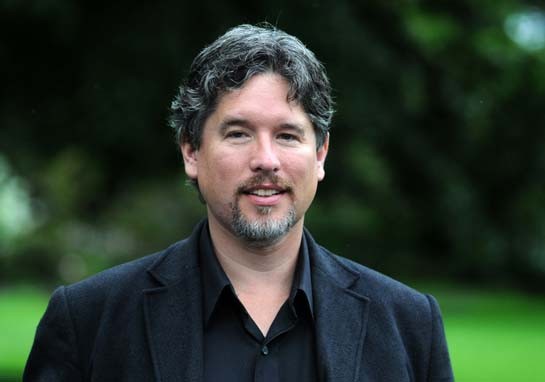As the strike at Canada's oldest independent newspaper passes the 100-day mark, Frank Campbell is candid about the impasse. "Things are very stagnant. There are no talks. There is no talk of talks," says the vice-president of the Halifax Typographical Union (HTU), which represents the Halifax Chronicle Herald's locked-out journalists, photographers and editors. "We don't see anything changing in the immediate future."
What has changed is the Chronicle Herald's content. During the strike, freelance strikebreakers have been recruited to replace the striking journalists' work with anonymous stories. Those uncredited columns have brought notoriety to the Nova Scotia newspaper.
NO BYLINES, NO ACCOUNTABILITY
One article in particular, published on April 8th and written by an unnamed freelancer, was based upon a highly questionable account of events at a local school, as told by one source who used a nickname.
"Parents worried over school kids' brutality at Chebucto Heights Elementary School" read the inflammatory headline. With its theme of "violence by refugee students" and its unfounded allegations of Muslim children attacking others at the school, the Herald story attracted nationwide attention for all the wrong reasons: questionable reporting, lax editorial oversight, and a fuelling of racist, Islamophobic attitudes.
Although the Herald later altered and then removed the story from its website, deletion did little to improve the newspaper's reputation. "'No bylines, no accountability' is the way we look at it," explains Campbell. "Who did it? Who edited it? Nobody knows. But we have a pretty good idea who did it. That story would not have happened if we'd been at work."
A journalist and editor for over 30 years, Campbell has spent the past 19 at the Herald, and has been a union member since the paper's workers first unionized in 1999.
While they remain on the picket line outside their employer's building, experienced Herald journalists and editors like him are still practising their craft, but they're contributing their work to the HTU's online news site, Local Xpress, instead.

Ingrid Bulmer (left) is president of the Halifax Typographical Union, Local 30130 of CWA Canada. Frank Campbell (right) is vice-president. PHOTOGRAPH: TREVOR BECKERSON
Relying on freelancers at the expense of unionized full-time workers has compromised the Chronicle Herald's quality, argues the Herald's Truro Bureau reporter. "I wouldn't call them 'freelancers.' I'd use another word," he says wryly. "All of them are young and inexperienced. Not a good way to start your career, and it reflects on the quality of the newspaper."
BAIT AND SWITCH
The Chronicle Herald left its old Argyle Street premises in late 2008, moving to a modern new building on Joseph Howe Drive. It also invested in new printing equipment at its Bluewater Road, Bedford print facility in recent years — all while whittling away at the paper's raison d'être, the creation and distribution of factually accurate, well-crafted news items, particularly local stories.
Refusing to negotiate with HTU members and resorting to the use of anonymous freelancers makes it easier for Herald management to get away with dubious practices like the inclusion of advertorials — paid advertising masquerading as fact-based reporting, suggests Campbell. Advertorials amount to a bait-and-switch, by "trying to fool the reader into thinking it's real news."
However, real news does not come free or cheap. In 2009, a round of layoffs and early retirements at the newspaper meant that fewer than 60 people were left to do the work formerly performed by over 100. It's therefore unrealistic, says Campbell, for the employer to demand that HTU members working a usual 35-hour week now accept a contract that will see overtime start at 48 hours.
Tim Currie is acting director of the School of Journalism at Halifax's University of King's College. He tells Our Times that the program has no official stance, for or against, regarding the Chronicle Herald strike, but "It would be a rare thing for news coverage to actually improve during a labour disruption. Certainly the students have noticed that the coverage has changed a bit."
The university's journalism classes finished for the academic year in February, with senior students moving into internships at various news outlets, the Chronicle Herald not among them.
The strike "did affect our internships this year, so that was an impact on the school and the students," says Currie, although he adds that students did not approach him with any concerns specifically related to the labour dispute.

Tim Currie teaches online journalism at University of King’s College, including undergraduate multimedia production workshops and a master’s course in social media. He is the acting director of the School of Journalism. PHOTOGRAPH: MICHAEL CREAGEN
"We know there are a lot of pressures facing the news industry these days," he continues. "The Herald is a private company — we don't know their finances, but there's a transformation of the business environment that's squeezing the bottom line of news organizations. It's not unique to the Herald."
Does this mean unpaid bloggers will become the future generators of most news coverage? Currie says no, but he sees the decline of traditional careers in print media and television reporting paralleling the rise of positions for online editors and social media editors.
"The way the internet has been unbundling is affecting music, it's affecting taxis, places to stay. So, the thing is, news readership has never been higher. It's just the business model that's changed."
REAL NEWS TAKES REAL RESOURCES
He describes efforts to monetize news content amid advertising-revenue declines as a real challenge: "It takes money to do good journalism, especially investigative journalism. It takes weeks or months to do. It's hard to do investigative journalism when you don't have revenue coming in."
Journalism students typically go into the program knowing they will work for multiple employers over their careers. They are also aware their journalistic work is unlikely to bring them significant wealth. According to Currie, "That's always been the case."
Still, escalating costs of living mean that poorly remunerated media workers (including some Herald staff) have left the field for other careers, which takes a toll on the quality of news coverage.
"Good reporting takes effort," argues the journalism school's acting director. "We can't expect good reporting for free, so we have to find a way to find a business model that allows them to do the work that they do."
READING BETWEEN THE BYLINES
It's unclear what comes next for labour relations and news coverage at the Chronicle Herald. Of the now-infamous article that the Herald removed from its own website Campbell says, "We sort of thought that the story about the children would be a tipping point when they took it down, and when people wanted to use it as hate propaganda."
Two days after a May 7th public rally in support of the HTU workers, and the day after the Atlantic Journalism Awards gala, the HTU's Twitter account, @HTU_official, observed: "The Chronicle Herald has bylines again #CHstrike."
Freelancers were suddenly sporting bylines, perhaps to muddy the waters surrounding the HTU strike — the bylines did not signify the return of unionized journalists to the newspaper or even Herald management's return to the bargaining table.
The HTU also tweeted, in reference to the Atlantic Journalism Awards, "Just heard CH hired security guard to sit out front of #ajasgala banquet hall to keep an eye on us #CHstrike."
"What we've been asking people to do is stop reading or subscribing, but that's a double-edged sword if you stop reading or subscribing. This thing has already lasted three months and could last six months or longer," cautions Campbell.
"But those are the weapons we have — asking people to stop subscribing and for advertisers to stop advertising."

LEFT TO RIGHT: Randy Jones, Ray Gilkie, and John Pearce. PHOTOGRAPH: TREVOR BECKERSON
On May 19th, Local Xpress revealed its new identity as a complete, online, non-profit newspaper which would be running advertising and obituaries.
The contributors — striking Herald employees — would not receive a wage from the expanded online presence, as revenues would go toward production costs. But the move is likely to prompt the Chronicle Herald to revisit the logic of pushing its greatest asset onto the picket line, where journalists, editors and photographers build rival Local Xpress for no compensation beyond strike pay.
Supporters can contribute to the venture via a Patreon crowdfunding campaign.
The page for Local Xpress includes a description of how and why this alternative funding model for local news is important: "Our union local and our parent union, CWA Canada, have . . . shouldered all the costs so far of starting up and maintaining our site. And while our news is free, internet startup costs aren't — helping to fund us will mean that over time we can make our site better (the under-the-hood stuff) and add more content."
Quality local coverage and unionized media jobs will never be yesterday's news.
Melissa Keith is a former radio broadcaster and an award-winning freelance journalist. She lives in Lower Sackville, Nova Scotia.















